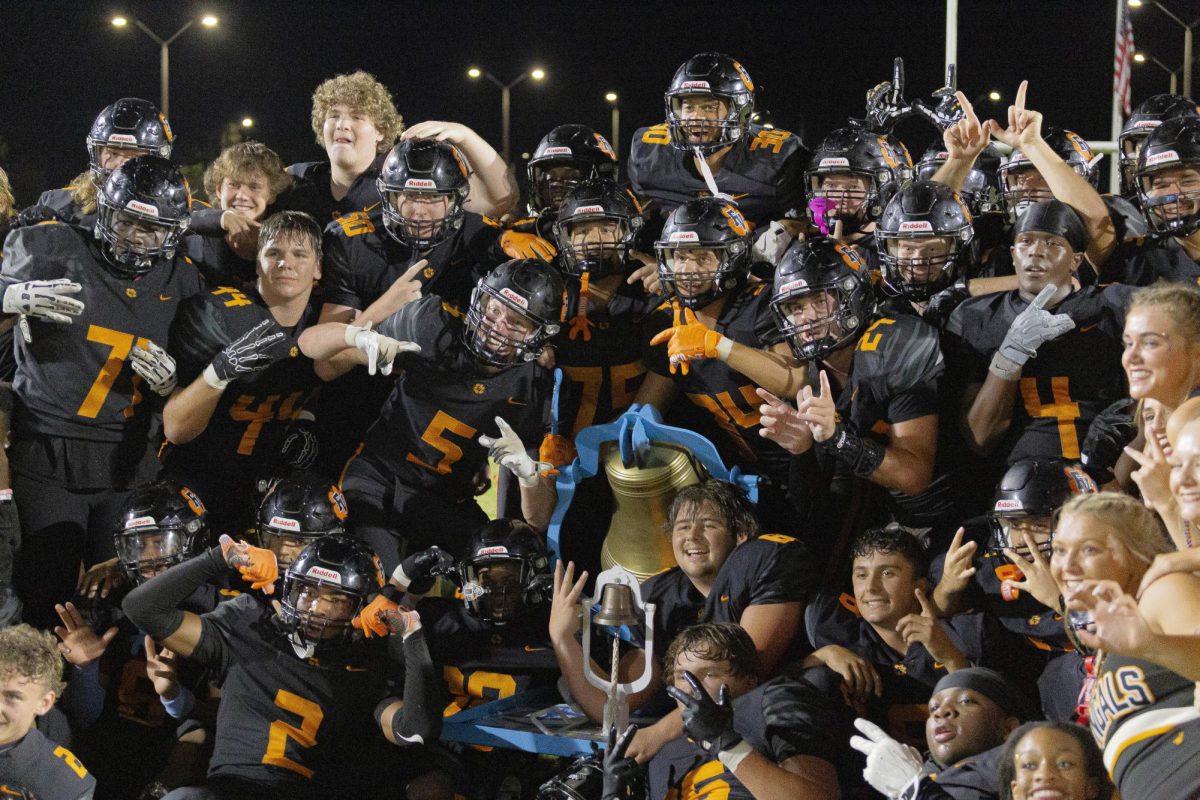The 12 team College Football Playoff will shake up the decades long standards that have governed the old four team playoff. This 12 team playoff aims to be more mathematical and statistically oriented than its predecessor, but it still leaves lots of room for conversation as to who will be the seven “at-large” teams.
The 12 team playoff system awards five of its spots to conference champions, one to each to the Power Four conferences (SEC, ACC, Big 10 and Big 12) and one to the best of the Group of Five (Mountain West, CUSA, American, MAC and Sun Belt) conference champions.
The Group of Five representative will most likely be Boise State, as their running back Ashton Jeanty has led them to an 8-1 start with multiple blowouts against conference opponents. Their only loss comes at the hands of Oregon, the number one team in the nation.
Speaking of Oregon, they seem to have been taking their move to the Big 10 well, as they will likely be the Big 10 champion. After beating several of their new conference rivals by a margin of 20 or more, and beating #2 Ohio State in an incredibly close game, it is clear that they will make the playoffs, potentially at the glorious #1 seed.
A much less clear cut conference is the SEC. With five two-loss teams and not a single undefeated team left, it is almost impossible to call a champion this early, as many key matchups still need to happen.
If the season were to end right now, the conference championship would be Tennessee and Texas A&M, but this could change, as teams like Texas, Georgia and Alabama are working towards a bye in the playoffs and another conference championship banner to hang from the rafters.
With the loss of the Red River Rivals, the Big 12 has lots of holes that up-and-coming teams are trying to fill. For example, undefeated BYU, who is currently ranked seventh in the AP poll, is currently on top of the Big 12.
BYU’s biggest challenge for the Big 12 title is 7-2 Colorado, but looking at the strength of schedule, it seems that BYU could easily defeat Colorado, as Colorado has only faced one ranked opponent, #20 Kansas State, in which Colorado lost by a field goal. This is compared to BYU’s two wins against ranked opponents, Kansas State and SMU.
SMU currently sits at 14th in the nation, but first in the ACC. However, the ACC is still split among three top contenders, SMU, Clemson and Miami. SMU recently moved to the ACC from the American, and have flourished there, going 8-1 and beating every conference opponent they have faced, just like they did back in the American.
Miami and Clemson have both had their struggles, with Miami’s coming last Saturday at the hands of Georgia Tech, which knocked them out of the #1 spot. Clemson’s biggest failure came from #22 Louisville, a fellow ACC member, who beat them 33-21, proving that Clemson cannot compete against other ranked teams.
The last seven at-large spots in the College Football Playoff will be decided by everyone’s favorite: the College Football Selection Committee. After the dividing and controversial playoff last year, they wanted to lose some of the heat with the implementation of this 12 team playoff. But, of course, they had to keep some of the power for themselves, selecting only seven of the 12.
Many teams are still in contention for the at-large bids, including schools like Notre Dame (lost to Northern Illinois), Alabama (lost to Vanderbuilt) and Georgia (lost to Alabama and Ole Miss). There are also a few teams that haven’t been talked about when referring to the playoffs in a number of years, such as Army, Penn State and Indiana.
All of these schools are in the top 11, and therefore currently in the playoffs, except for Army, who is looking to pull ahead of Boise State with an American Conference title, as well as an undefeated record.
It is impossible to tell who will make the playoffs this far out from the end of the season, especially with all of the aforementioned upsets and changes from the traditionally “good” teams. It will definitely be an interesting few weeks leading up to the playoffs and a historical finish to a rollercoaster of a season.










































